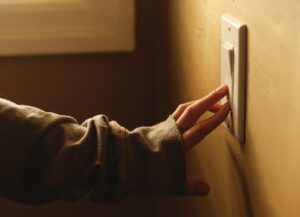When it comes to home electrical systems, there’s a plethora of questions that homeowners often find themselves asking. From concerns about overloaded outlets to the detection of knob and tube wiring, and the importance of GFCI-protected outlets, understanding the basics of your home’s electrical setup is crucial for both safety and peace of mind. In this comprehensive FAQ, we’ll address some of the most common questions surrounding home electrical systems to help you navigate the world of wires, circuits, and outlets. Just be sure to call for an electrician in Sherman, TX when you need one.
- How can I tell if my outlets are overloaded?
An overloaded outlet can pose serious risks such as electrical fires. Signs of an overloaded outlet include flickering lights, warm outlets, or frequently tripping circuit breakers. To prevent overloads, distribute your electrical devices across multiple outlets and avoid using daisy chains of power strips.
- What is knob and tube wiring, and how can I detect it in my home?
Knob and tube wiring was commonly used in homes built before the 1950s. It consists of ceramic knobs and tubes that hold wires in place. While it was once considered state-of-the-art, it may pose safety hazards today. To detect knob and tube wiring, inspect your attic and basement for visible wiring. If you’re unsure, consult with a licensed electrician for a thorough assessment.
- Why are GFCI outlets important?
Ground Fault Circuit Interrupter (GFCI) outlets are crucial for preventing electrical shocks in areas prone to moisture, such as kitchens and bathrooms. These outlets quickly shut off power if they sense a ground fault, protecting you from potential electrocution. Ensure that GFCI outlets are installed in areas specified by electrical codes, and regularly test them to ensure they are functioning correctly.
- How often should I inspect my electrical panel?
Regular inspection of your electrical panel is essential for identifying potential issues before they escalate. Inspect your panel at least once a year, checking for signs of wear, corrosion, or loose wires. If you notice any abnormalities, contact a qualified electrician to address the problem promptly.
- Can I do my own electrical work at home?
While simple tasks like changing a light switch or outlet cover may be DIY-friendly, it’s crucial to recognize your limitations. Electrical work can be hazardous, and mistakes can lead to serious consequences. For any significant electrical projects, consult with a licensed electrician to ensure the work is done safely and up to code.
- What is the purpose of a surge protector, and do I need one?
Surge protectors safeguard your electronic devices from power surges caused by lightning, faulty wiring, or other electrical issues. Even if you live in an area with relatively stable power, investing in surge protectors can add an extra layer of protection for your valuable electronics.
Navigating the intricacies of home electrical systems doesn’t have to be a daunting task. By understanding the basics and addressing common concerns, you can ensure the safety and efficiency of your home’s electrical setup. If you ever find yourself in doubt or facing electrical issues beyond your expertise, always consult with a licensed electrician to maintain a secure and reliable home environment.
If you need an electrician in Sherman, TX, schedule an appointment today with Hutchins Plumbing & Air Conditioning. Get it done right… Right now!










